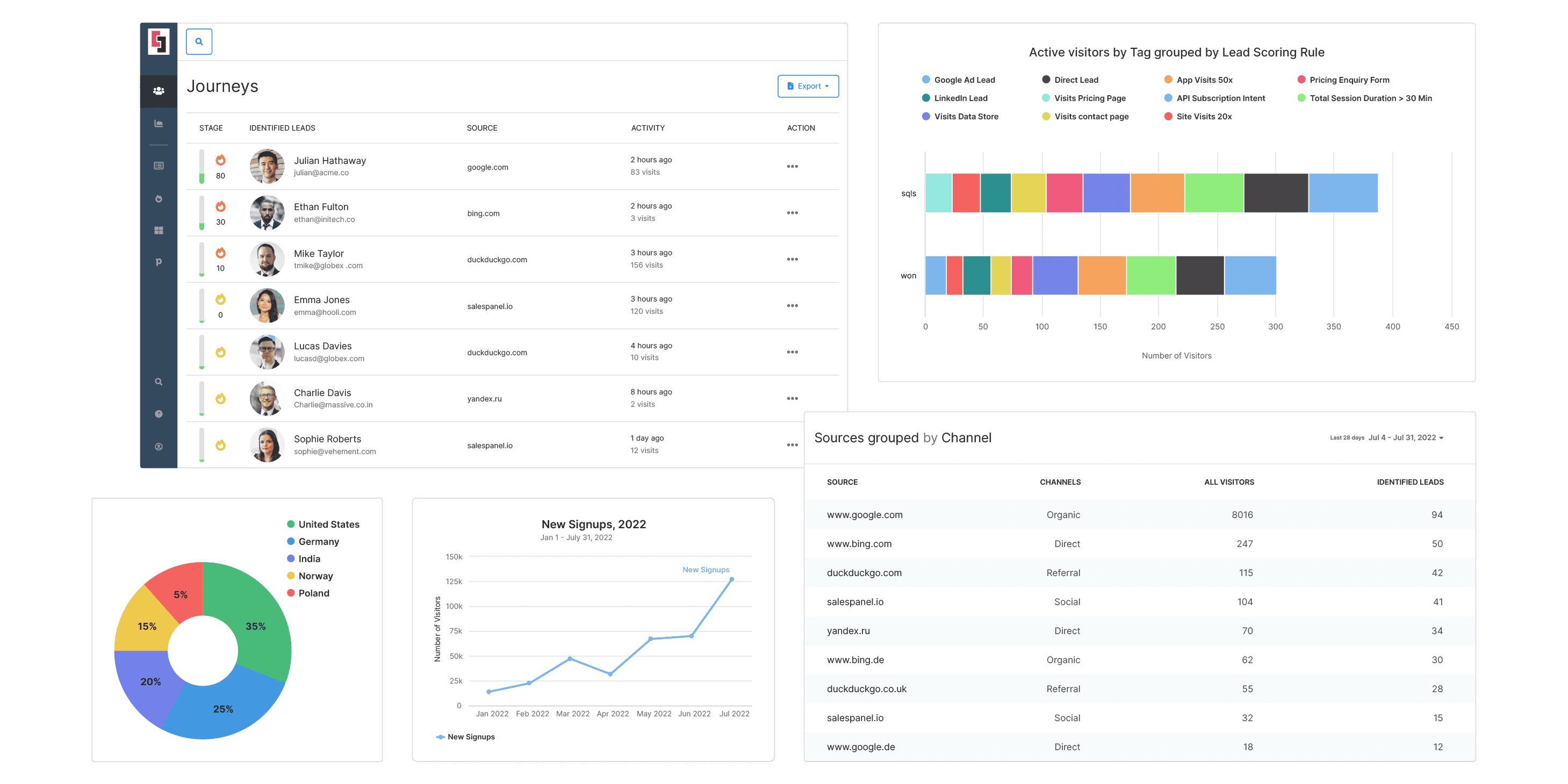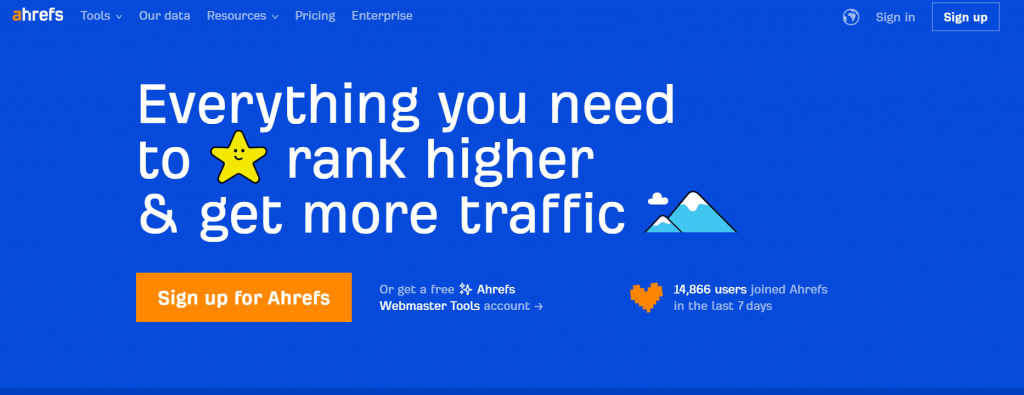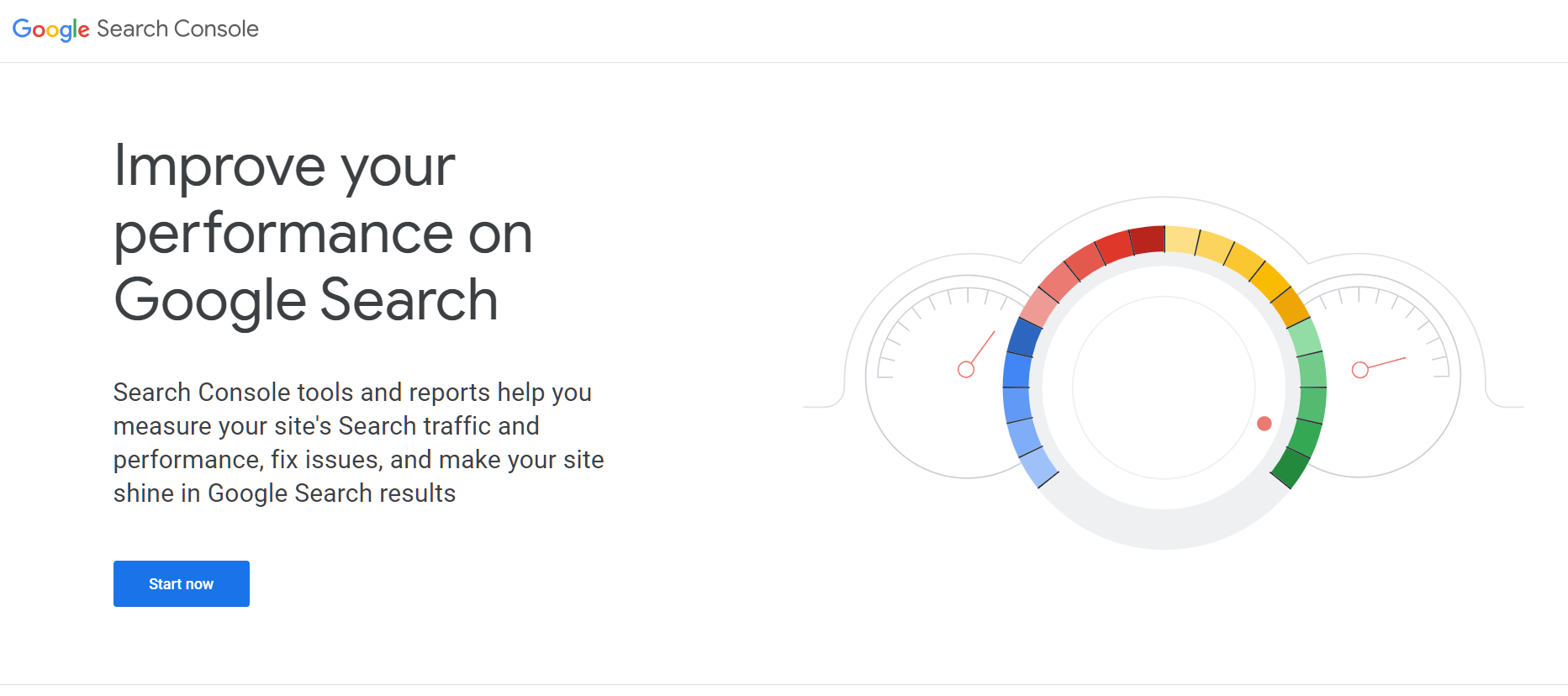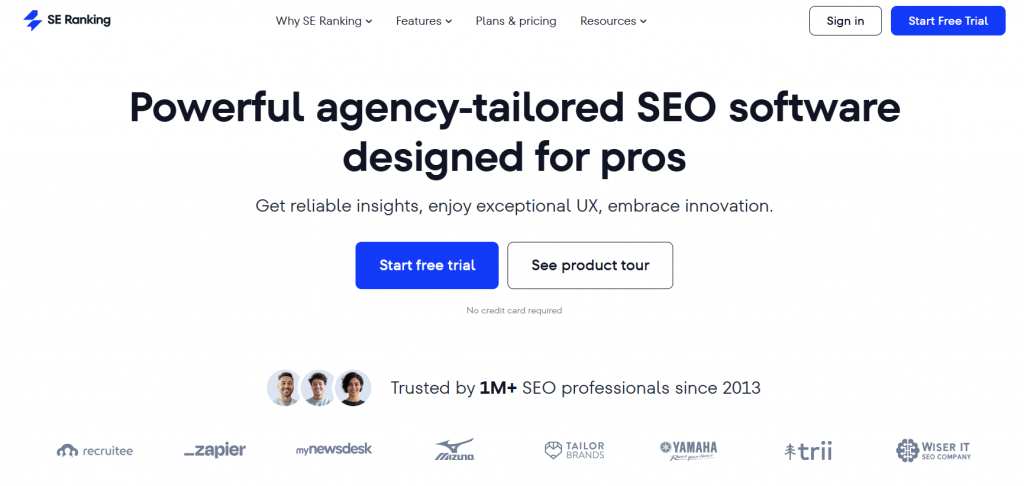What is Website Positioning Software? Tools to Improve Your Website Search Rankings in 2025!
Updated on 8th April 2025
Here’s a bitter truth: SEO is dead. Or, at least, it is dead in the way we knew it. With AI-powered tools like ChatGPT, zero-click searches, and the rise of paid ads, it is easy to believe organic rankings don’t matter anymore. However, statistics indicate that ranking at the top of SERPs in your niche can generate 39.8 click-through rates for any business.
This means that if your website is positioned at the #1 spot on major search engines’ SERPs, you can grab a massive share of organic traffic to fuel your ultimate marketing agenda—influencing more conversions and printing money for your digital business. But how do you improve your website’s search rankings in today’s fiercely competitive search landscape?
Answer: website positioning tools. That’s right!
Website positioning software, such as SEO tools, analytics platforms, and visitor tracking software, can help you track your website’s current ranking, compare it with those of your competitors, monitor improvements in search rankings over time, identify areas for optimization, and analyze user engagement with your site from gained positions.
In this blog, we will discuss website positioning software—what it is, how it can help you, the benefits of using such tools, and how they enable you to position your website correctly. We will highlight a few tools you must check out in 2025 for your website positioning needs.
What is a Website Positioning Software?
Website positioning software is a suite of products that enhances your website’s visibility on search engines and, therefore, its ranking on SERPs.
These software provide several functionalities to track, analyze, and optimize how well and extensively your website is performing in search engines like Google, Bing, and Yahoo.
Website positioning software may include common functionalities like keyword research, on-page optimization for meta tags, headings, images, and URLs; technical SEO analysis for broken links, duplicates, page speed, and mobile friendliness; backlink and competitor analysis; rank tracking; content optimization; reporting and analytics, etc.
So, how can website positioning software help you? Who is it ideal for? We’ll be discussing that in detail in the next section.

How Can a Website Positioning Software Help You?
Website positioning software can be critical for small businesses competing with larger corporations for search visibility. It can help you gain a significant advantage in today’s online business environment, even with limited budgets, resources, and time.
Moreover, website positioning software can help you navigate significant dips in traffic caused by algorithmic updates.
For example, HubSpot lost 80% of its blog traffic following Google’s March 2024 core update, which led to a huge blowout in the marketing community. Many industry leaders, including Larry Kim, Founder of WordStream, declared SEO dead after this debacle.

Image source: Search Engine Land

Image source: SurferSEO
However, research indicates this primarily happened because many of HubSpot’s high-performing blogs targeted irrelevant content, lacking the depth and expertise required by Google’s (Expertise, Experience, Authority, Trustworthiness) E-E-A-T framework.
The company cast a wide net with topics like real estate licenses, quotes, emojis, small business ideas, and many more that were completely unrelated to its core product offerings. These mistakes ultimately diluted its topical authority and cost HubSpot millions in traffic.
But here’s the thing. HubSpot is a recognized industry pioneer in the SEO and content marketing spaces and can afford to make mistakes to some extent. Smaller pages, though, can be decimated if they don’t prevent such pitfalls.
This is why you need to build your website positioning tool stack. Using SEO software to target relevant keywords and user analytics tools to measure metrics like time on page and click-through rates can help you maximize your organic marketing efforts and create content that aligns with Google’s guidelines and, thereby ranks at the top of Google’s SERPs.
Want to learn more about the benefits of using website positioning software? We have discussed the most important ones right below.
Benefits of Using Website Positioning Software
Here are some more benefits of using website positioning software:
Boost Your Online Visibility on a Budget
Web positioning software makes your small business website appear in search results without spending a lot of money on advertisements.
Such tools help you select the appropriate keywords for your website so that customers looking for your goods or services can reach you quickly.
Get Ahead of Your Competitors
With the help of data-driven insights and suggestions from web positioning software, you may better comprehend your competitor’s tactics and output.
With few resources, you can modify your SEO strategy, spot possibilities, and maintain an advantage over competitors.
Increase Relevant Website Traffic
You can also use web positioning software to determine the phrases and terms customers use while searching for products or services similar to your offerings.
Such tools help you optimise your website for relevant traffic, increasing the likelihood that potential clients looking for products or services similar to what you sell will find your website and convert. Moreover, website positioning tools can also be used to identify which meta tags and backlinks are helping your content rank higher. This can assist you in building a strong brand image and create trust among potential customers.
Save Time and Effort
In addition to sales and business development, handling website positioning can be difficult for a small business owner.
Website positioning software can help you perform tasks such as keyword research, rank tracking, and content optimization more rapidly and raise your website’s ranking. This allows you to continue working on other important facets of your company without sacrificing the quality of your website improvement.
In the following sections, we will discuss how SEO tools and visitor-tracking software can help with website positioning.
How SEO Tools Can Help with Website Positioning?
The three principal SEO tools that should be used to enhance search engine optimization for your company include: keyword research, rank tracking, and site audit tools.
Keyword Research Tools
Keyword research tools identify the targeted keywords to rank their content. In addition to keyword search volume and competition, these tools provide related terms, thus helping you choose the right keywords for a website content strategy.
Google Ads Keyword Planner is largely the most up-to-date and reliable software for keyword research; however, others like Ahrefs, Moz, and Ubersuggest are excellent alternatives that you can rely upon for uncovering organic target keywords
Note: Google Keyword Planner is more campaign-oriented than other tools that empower general organic efforts.
Rank Tracking Software
To occupy the top positions, you must monitor its performance. Position tracking, also known as, rank tracking software, helps you determine how well your website performs for certain keywords in the SERPs and how it compares to competitors.
It allows you to determine where you are performing well and, better yet, where you need to improve. AccuRanker, Serpwatch, and Semrush’s Position Tracking Tool are among the most competent in terms of rank tracking software.
Site Audit Tools
Site audit tools check a site for technical or content optimization elements that can be worked on. These applications analyze websites for technical problems, SEO issues, or necessary improvements.
They check for broken links, duplicate content, page speed, mobile friendliness, and all other factors that affect the site’s performance and ranking. Some major tools for site audits include Screaming Frog, GTmetrix, and MySiteAuditor.
BONUS: On-page SEO analysis tools can also be considered among the SEO tools you need for website positioning. These applications examine a webpage’s meta tags, headers, and other on-page elements in an effort to conform to search engines. You could also perform some on-page SEO analysis to see how well your competitors optimize their content with the right headings, keywords, and meta tags.
On-page SEO analysis tools can broadly be classified under two types: plugins used for websites created with WordPress and SEO tools that include some form of on-page analysis in their offerings that can accomplish on-page SEO analysis.
- Plugins for WordPress SEO: WordPress SEO plugins allow you to gauge the frequency at which specific words you want your page optimized for appear in the various areas of the website. This has an impact on your ranking. Such software will also check the presence of that term in your website’s meta tags and give you suggestions on improving its use. The top WordPress SEO tools include Yoast and AIO SEO plugins.
- Tools For On-Page SEO Analysis: These SEO tools analyze on-page characteristics such as meta tags, headings, content optimization, internal linking, and technical SEO focuses for opportunities to improve website rankings and the user experience when found on the search engine. Semrush’s and SE Ranking’s On-Page SEO Checkers are the leading SEO applications for on-page SEO analysis.
How Can a Website Visitor Tracking Software Help with Website Positioning?
Visitor tracking software allows one to see who visits a website and what their actions imply while they are on the site. With the best web visitor tracking solutions, you can track visitor journeys, measure conversions from the positions you gain, and gain a deeper insight into your leads and customers.
Here’s how it works.
Website visitor tracking collects visitor data from your site through a script installed on your web page. It gathers information relevant to knowing who your visitors are, what they did while on your site, and the marketing channels they used to reach your pages.
In general terms, website visitor tracking is a pretty vague term; it can refer to many different things. However, we can broadly categorize the tools into three categories: visitor identification tools, user behaviour-tracking tools, and website analytics tools.
Visitor Identification Tools
Visitor identification tools enable businesses to track every individual website visit and follow its journey through channels, ads, campaigns, and pages toward the conversion into a lead. Visitor identification tools can be categorized into two categories: one helps identify companies visiting your website, and the other helps view visitor sessions through session recordings.
Salespanel and Clearbit Reveal are excellent examples of account identification tools, while Hotjar and CrazyEgg are great examples of session recording tools.
Behavior Tracking Tools
These are mostly tools that observe and analyze user interaction with a website. They provide feedback related to the user’s involvement and preferences by assessing actions such as clicks, views, scroll depths, and the time spent on each page.
Some of the most wonderful examples of behavior tracking tools are Salespanel, Mixpanel, Heap, and FullStory.
Website Analytics Tools
Website analytic tools triangulate different data points to form a complete picture of a website’s function and performance.
These tools help businesses measure metrics that include the number of users, the average length of a session, and demographic information about the users. This software can assist companies in better understanding their audience, measuring marketing success, optimizing website performance, and making data-driven decisions to make online success possible.
Some fresh examples of website analytic tools are Google Analytics, Salespanel (once again :D), Adobe Analytics, and Woopra
So, which are the top website positioning software you should check out in 2025? Let’s check them out in the next section below.
Top Five Website Positioning Software You Should Check Out in 2025
Here are the top five website positioning tools you should check out in 2025:
Salespanel
Salespanel is our product that lets marketers track prospects from their very first interaction to the sales sequence. It provides an all-encompassing analysis of the visitors a website has gained, thanks to your positioning efforts.
Salespanel aggregates the data into an integrated customer view that allows you to track your users’ entire journey, from the first visit to the moment they become customers.

Salespanel features support acquiring first-party buyer intent data, identifying accounts visiting your website, and qualifying leads in real-time. These allow marketers to analyze, nurture, and qualify leads coming into their marketing efforts and convert them into prospects.
Salespanel captures the lead by itself when they fill in a web form, hit a newsletter program, use a live chat, or whatever. The software would also help you track custom website events and product milestones so you can see how those prospects and customers interact with your website. Alternatively, with Salespanel, you could configure your website to draw in high-quality leads, reciprocate with tailored marketing engagement, and hasten your sales process.
Salespanel’s pricing plans start at $99 per month. Get started with the 14-day free trial today!
Ahrefs
Ahrefs is one of the best software for SEO and website position optimization. It includes features for keyword rank tracking, keyword research tools, competitive analysis, and backlink analysis.
With Ahrefs, you can track the overall health of your site, see which pages are doing well, and uncover content gaps—thereby helping you pinpoint how to position your website best for attracting your desired prospects and ultimately fulfilling your business goals.

How does it work? Ahrefs tools crawl through your site and give you data to help you understand how to optimize your organic webpage approach. With its capability to perform website audits, explore high-performing content, check your site’s rank, and much more, Ahrefs is reliable software. One of its stand-out features is the competitor analysis tool.
Ahrefs Site Explorer tool allows you to analyze three key aspects of a competitor’s website, namely organic traffic performance, backlink profile, and the website structure, to frame marketing strategies for strengthening and building your business out from that of the competing rival. Other SEO features provided by Ahrefs include:
- Site Audit: Scans your website for technical SEO issues, providing insights on health scores, crawlability, performance, and other optimization opportunities.
- Keywords Explorer: Provides extensive keyword research insights that include search volume, keyword difficulties, and other competitive advantages regarding traffic potential.
- Content Explorer: Helps discover high-performing content by analyzing backlinks, social shares, and traffic metrics for millions of web pages.
- Rank Tracker: Monitors the rankings of your website on search engines, tracking keyword positions, visibility trends, and performance against competitors over time.
Ahrefs’s pricing plans start at $129 a month. While Ahrefs does not offer a free trial, you can sign up for its Webmaster toolkit to get free limited access to its Site Explorer and Site Audit features.
Semrush
Semrush is among the world’s most widely used search engine optimization tools. It allows you to track traffic, visitors, keyword ranks, and so on. The software further provides an in-depth analysis of an SEO campaign and suggestions on website optimization.
Here are a few features of Semrush that make it one of the best website positioning tools on the market:

- Keyword Tracking: Keyword Tracking: Semrush lets users monitor and track the words relevant to their website. This tool enables the user to check which keywords attract the most visitors to their site and which require extra effort before hitting the search engines.
- Competitor Tracking: This Semrush feature allows you to locate the most-visited pages on your competitors’ websites, the keywords they have targeted, and their backlink strategies. The Competitor Research Toolkit also provides a Traffic Analytics feature, giving insights into your competitors’ audience demographics and engagement metrics.
- Website Traffic Analysis: Semrush gives extensive data concerning your website’s traffic. You can learn which pages were most viewed, how long users stayed, and where the users came from.
- Backlink Tracking: This feature in Semrush lets you view your backlink profile and spot any issues that might hurt your SEO efforts. Given that backlinks directly influence search results, looking at them can provide clues about improvement and enable you to make the most of your link-building efforts.
Semrush offers various pricing plans, starting at $139.95 per month. It also offers a 7-day free trial so users can try out its different features before investing their money.
Google Search Console
Google Search Console is a free tool that allows users to monitor their website’s performance in Google search results. This tool also helps you ensure that your website complies with Google’s Webmaster Guidelines and offers tips on getting more traffic from Google Search.

Under GSC, four key metrics are monitored: impressions, clicks, positions, and click-through rates (CTR). You can analyze this information on a per-term or per-page basis, monitoring how often users enter your site based on this metric for keywords on Google, how many times users click your site, and more.
Through GSC, you can now gather insightful data on how your site looks and performs in Google search results so you can establish some modifications to focus on.
For instance, by analyzing GSC data, one could identify the specific keywords that assist the website in garnering the highest visitor exposure and leveling up click-through rates. GSC creates a plethora of reports, like the Index Coverage Report, which highlights pages that have been indexed correctly, pages excluded from indexing, and pages generating errors that block them from appearing in the Google results account, and the Core Web Vitals Reporting gives insight into a page’s loading, interactivity, and visual stability, as all three aspects serve as main ranking factors with Google’s algorithms.
SE Ranking
SE Ranking is a versatile SEO platform with tools that help you boost online visibility by monitoring rankings, optimizing content, and analyzing competitors. It is a great choice for website positioning software. SE Ranking’s user-friendly interface, combined with a comprehensive suite of tools, provides the right tools to any marketer, business, or agency ready to climb search engine ranks.

Here are some features of SE Ranking that make it the best website positioning software:
- Keyword Rank Tracker: One of the best features of the SE Ranking platform is an industrial-grade Keyword Tracker that allows users to bid information by tracking keyword positions in various regions across different search sources like Google, Yahoo, and Bing based on many other factors. Real-time monitoring means shifts in position ranking show up in real-time, allowing companies to evaluate the performance of their SEO strategies.
- Website Audit Tool: This feature lets one analyze a site for broken links, repeated content, incomplete meta, slow pages, and mobile usability issues. It will give the analyzed website a health score and actionable recommendations to promote high performance and indexing.
- Competitor and Backlink Analytics: SE Ranking’s Competitor Analysis tool allows users to assess competitors’ keyword rankings, backlink portfolios, and traffic sources, while its Backlink Checker tool tracks new and lost backlinks and determines their quality for further analysis of how link construction can influence domain authority.
- Local and Paid SEO Insights: SE Ranking also has a local SEO analytics feature that focuses on SEO analysis for local businesses, providing ease of access to monitor keyword rankings across cities and regions, while its PPC research tool crawls across paid search campaigns to give positive customer keyword strategies for successful Paid advertising campaigns.
SE Ranking offers various pricing plans, starting at $52 per month. Each plan includes a 14-day free trial so users can test the software before choosing it for long-term strategies.
Choose the Right Website Positioning Software To Improve Your Website’s Performance!
Choosing the right search engine optimization software may initially be challenging for your convenience and ease of use. However, with the right tools, improving online visibility, attracting targeted customers, and achieving a higher ROI on your SEO efforts can become much easier.
Any of the tools mentioned above can help you get started. For instance, Salespanel is your best bet if you want to monitor visitor engagement. In contrast, Ahrefs and Semrush can prove mighty useful if your goal is to rank your site on SERPs. Last but not least, those interested in tracking website user funnel drop-offs to enhance their selling process might consider investing in user experience tools, such as Hotjar and CrazyEgg.
Each website positioning tool serves a different purpose, so it is best to use a combination of products across various categories to produce optimum results. Leverage website positioning software to pave the way for ongoing growth and success in the digital world today.
Sell more, understand your customers’ journey for free!
Sales and Marketing teams spend millions of dollars to bring visitors to your website. But do you track your customer’s journey? Do you know who buys and why?
Around 8% of your website traffic will sign up on your lead forms. What happens to the other 92% of your traffic? Can you identify your visiting accounts? Can you engage and retarget your qualified visitors even if they are not identified?


